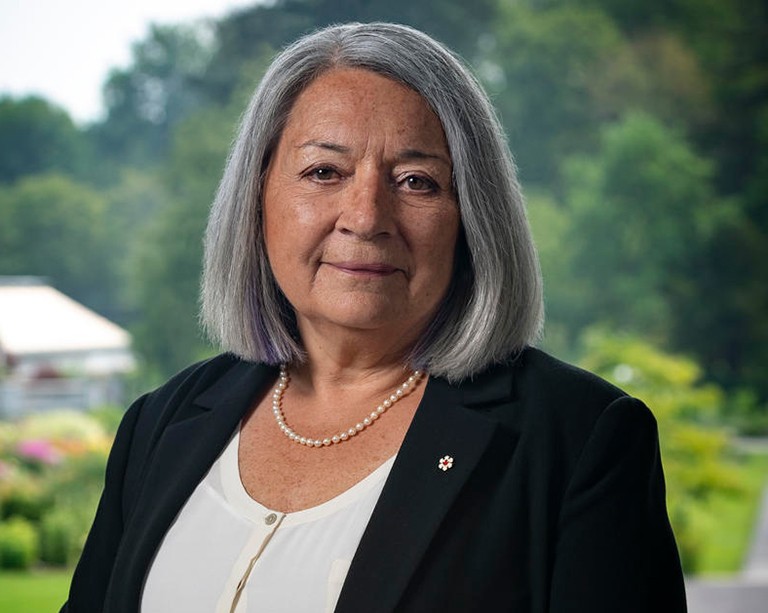Concordia alumna earns 2 prestigious awards for groundbreaking research on brain cancer treatments

Concordia graduate Gabrielle Mandl (BSc 17, PhD 23) has received two of the most prestigious awards in her field, solidifying her place as a leader in nanoparticle-based cancer research.
She won the 2024 CGS/ProQuest Dissertation Award for Mathematics, Physical Sciences, and Engineering, recognizing her PhD thesis as the best in North America. She also received the 2024 IUPAC-Solvay International Award for Young Chemists, presented to five researchers globally for groundbreaking work in chemical sciences.
Mandl’s innovative PhD work on glioblastoma, an aggressive and often fatal brain cancer, has advanced scientific understanding and could reduce radiation side effects while improving treatment outcomes.
Her PhD research, conducted under the supervision of John Capobianco from the Department of Chemistry and Biochemistry, focused on designing radioluminescent nanoparticles for use in an emerging cancer treatment known as X-ray mediated photodynamic therapy.
Her work demonstrated how these nanoparticles, when combined with the molecule protoporphyrin IX, could amplify the effects of radiotherapy to destroy glioblastoma cells with unprecedented efficiency.
“We achieved a 10-fold reduction in the radiation needed for effective treatment, which could significantly reduce side effects for patients,” Mandl explains. “With the full treatment, we saw 99.6 per cent cancer cell death, which is way better than what is currently achieved using radiotherapy alone with only 86 per cent cancer cell death.”
Two prestigious awards
The CGS/ProQuest Dissertation Award for Mathematics, Physical Sciences, and Engineering is awarded by the Council of Graduate Schools and recognizes the most outstanding PhD thesis in North America in its category. Mandl is the first Concordian to win.
“To represent Concordia at this level means the world to me,” Mandl says. “This recognition highlights not just my work but the incredible support and community I’ve had at the university.”
The 2024 IUPAC-Solvay International Award for Young Chemists is a global award, presented by the International Union of Pure and Applied Chemistry and given to five individuals worldwide for the best PhD theses in the chemical sciences. As part of the honour, Mandl will attend the IUPAC Congress in Kuala Lumpur in July 2025 to accept her award.
“Gabrielle Mandl exemplifies the exceptional caliber of Concordia’s graduate students," says Faye Diamantoudi, Dean of Graduate Studies. "Her groundbreaking research and international recognition reflect the innovation, perseverance and impact that define our graduate community."
 Mandl with her supervisor, Professor Capobianco.
Mandl with her supervisor, Professor Capobianco.
A Concordian through and through
Mandl’s journey at Concordia began in 2012 as an undergraduate and continued through her PhD. Her contributions extend beyond research. She has been deeply involved in student life, earning Concordia’s Stanley G. French Medal for her outstanding academic and extracurricular achievements.
She was also the 2023 Faculty of Arts and Science valedictorian and received numerous graduation medals, including the Governor General’s Gold Medal awarded to the highest-ranking graduate student.
Pascale Sicotte, dean of the Faculty of Arts and Science, praises Mandl as a rare talent.
“Gabrielle Mandl is a true superstar and an inspiration to our community,” Sicotte shares. “Her innovative work in nanoscience has earned her recognition, both locally and from multiple prestigious organizations around the world. She stands out as an exceptional ambassador for Concordia, and we are incredibly proud to celebrate her success."
Mandl, in turn, credits her Concordia experience for shaping her success.
“The support I’ve had at Concordia — from Dr. Capobianco and from the entire community — has been phenomenal. I’ve grown so much here, and I couldn’t have done this without them.”
Currently a postdoctoral fellow at the Université de Montréal, Mandl is exploring whether her PhD treatment can stimulate the immune system to target metastatic cancer and prevent recurrence.
“We’re learning that radiotherapy isn’t just about damaging DNA — it can also activate the immune system,” Mandl says. “If our treatment can stimulate a lasting immune response, we can better target metastatic cancers and prevent cancer from recurring in the long run.”
Learn more about Concordia’s School of Graduate Studies.


